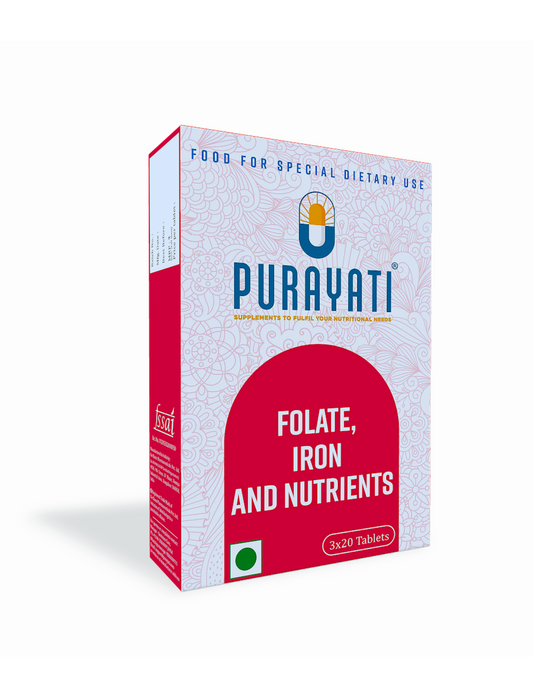Our body requires several nutrients such as vitamins, minerals, calcium, iron, etc. to function smoothly on a day-to-day basis. One of the most vital supplements required by the human body is Calcium. From the bones to muscles to nerves, every part of our body requires calcium to function its part efficiently.
Even though these nutrients are available in the foods that we consume, sometimes they do not fulfill the daily requirements through our regular diet. Thus, people opt for additional supplements such as calcium supplements and vitamins, etc. to fill this gap.
Table of Contents
- Why do we need calcium?
- How much calcium do I need?
- Calcium supplements
- Different types of Calcium supplements
- Who should take calcium supplements?
- The benefits of Calcium supplements
- Risk of High calcium supplements intake
- When should you take calcium supplements?
Why do we need calcium?
- Bone health: Our body requires calcium in order to have healthy bones and teeth. Calcium for bones is the most common reason for consuming this mineral. Our bones and teeth largely comprise calcium, which gives them a sturdy and strong structure that they need.
- Muscle contraction: Our muscles too require a certain amount of calcium to regulate muscle contraction. The calcium supports the protein in the body to carry out the contraction.
- Cardiovascular system: Calcium plays a vital role in the clotting of blood. The process of blood clotting is quite complex and requires a wide range of chemicals. Calcium is one of the key ones.
Another important role of calcium is in maintaining the movement of the heart muscle. Studies from varied researchers have found a link between high intake of calcium and lower blood pressure.
However, it is important to know that our body doesn’t produce calcium naturally and thus we need to consume the mineral from our daily diet. Thus, arises the question of how to increase bone calcium? Apart from our regular diet, the only way to increase the calcium levels in our body is to take supplements. However, ensure to have done full research or get advice from a professional before consuming any additional supplement.
How much calcium do I need?
You might wonder how much calcium is needed per day for our bodies. The amount of calcium required by the body depends on the age and gender of the person. It varies for men and women and also varies at different stages of our lives. The recommended daily dosage of calcium for a woman aged from 19-50, would be 1000 mg, however, any older would require 1200 mg. This is due to the fact that our bones tend to become weak as we grow older and thus require more amounts of these nutrients to remain healthy. Pregnant and breastfeeding women may require higher dosages as prescribed by their doctor.
Men 70 yrs or younger require 1000 mg per day and men over 70 are recommended 1200 mg per day.
Calcium supplements
While you must try to get as much as the recommended dosage of calcium for your body as possible from your daily diet, it is not always possible. This is when calcium supplements play a major role in filling this gap and making sure your body receives the Recommended Dietary Allowance (RDA).
Different types of Calcium supplements
Calcium supplements are made of different kinds of calcium compounds. Each of these compounds contains different amounts of the calcium mineral and the supplements are made according to the required dosage. Some of the most used calcium supplements are:
- Calcium Carbonate – has 40% of elemental calcium: Calcium carbonate is amongst the most common types of calcium you will find in calcium supplements. Primarily because it is a rock-based calcium compound and quite cheap to produce. The calcium comes from ground-up rocks like limestone and marble and limestone. It can be found in other sources as well.
- Calcium Phosphate- has 38.7% of elemental Calcium: Calcium phosphate is the calcium salt in phosphoric acid. It is the major form of calcium found in cow’s milk. Some of the toothpaste also contains calcium phosphate. Tooth enamel contains calcium phosphate in hydroxyapatite form and many research papers suggest that calcium phosphate-based toothpaste promotes tooth enamel.
- Calcium citrate – has 21% of elemental calcium: Calcium citrate is another common calcium type used in calcium supplements. It is obtained from rock calcium bound with citric acid. Calcium citrate has an acidic base which means it does not require hydrochloric acid for absorption. Therefore calcium citrate is beneficial for people who are on certain medications that reduce stomach acid, or patients who have undergone gastric bypass surgery. Since you don’t require stomach acid to consume calcium citrate, you can consume it with or without food.
- Calcium gluconate – has 9% of elemental calcium: It is the calcium salt of gluconic acid. The most widespread use of calcium gluconate is in an injection, which is administered to treat low calcium in the blood, high blood potassium, and magnesium toxicity. It is found in many supplements as well.
- Calcium lactate- 13% of elemental calcium: Calcium lactate is prepared for commercial use by mixing lactic acid with calcium hydroxide or calcium carbonate. The calcium lactate is used as a thickener and flavor enhancer. Calcium lactate supplements have a small amount of elemental calcium so you need to consume a lot of capsules to get its benefits.
Carbonate and citrate are the major forms of calcium supplements given the high amount of elemental calcium present in them. Gluconate and Lactate are other forms of calcium, with lesser elemental calcium. Out of these different types of calcium available to buy, calcium carbonate is the most inexpensive one and often the most preferred. This is due to the several calcium carbonate benefits that one can gain by consuming these supplements. Similarly, there are several calcium citrate uses as well for the health of the body.
Additionally, some calcium supplements also come combined with vitamins and other minerals such as Vitamin D, Magnesium, etc. It is important that you check the ingredient list before buying if you face any dietary or health concerns.
Who should take calcium supplements?
Consuming calcium through a healthy diet may also sometimes not be enough as per the recommended dosage. Some people who must consider taking additional supplements are:
- Those who follow a vegan diet
- Those who take a limited amount of dairy in their daily diet
- Those who are Lactose-intolerant
- Those with osteoporosis
- Those with bowel or digestive issues, whose ability to absorb vitamins and minerals may be less
- Those who intake high amounts of sodium or protein as this causes an increase in the excretion of calcium
Calcium supplements in these situations will help you meet your daily dietary requirements. Nevertheless, a doctor or dietician will be able to determine the amount of calcium you need to take depending on other factors.
Read More: DOES GLUCOSAMINE REALLY WORK FOR YOUR JOINT PAINS
The benefits of Calcium supplements
Calcium has several benefits of calcium tablets to the body and is a very important requirement for the smooth functioning of the body. Some of the most prominent benefits of calcium to the body are:
- Helps in forming bone and teeth: Consuming adequate amounts of calcium is necessary for building bone and can also prevent or delay bone loss at old age. Calcium is even more important for certain people who are at higher risk of bone loss. It also helps to maintain strength in the body and bones
- Plays a role in smooth movement and functioning of muscles
- Assists nerves in order to carry messages from the brain to other parts of the body
- Helps the blood vessels to relax and constrict
- Releases hormones and enzymes that help with several bodily functions
- Post-menopausal women benefit from calcium supplements largely, as it helps to prevent bone loss. There are several calcium supplements for women available in the market. It is important that you find the best calcium supplements for bones while choosing to take them, while also remembering the recommended dose of calcium intake per day.
- Colon cancer prevention: A lot of data suggests that Calcium capsules intake may have a preventive effect on Colon cancer. While there are so many factors that can increase the risk of Colon cancer, calcium supplements are not the conclusive answer
- Weight control: Some studies have shown a link between higher calcium intake and lower body weight but the results are still inconsistent
Risk of High calcium supplements intake
Too much of anything may not be good for the body. Similarly, high levels of calcium may also have diverse effects on the body. Some of the evident risks involved in consuming high calcium supplements are:
- Increased risk of heart disease – calcium from supplements sometimes moves into fatty plaques in your arteries which causes them to harden in turn increases the risk of heart diseases.
- High levels of calcium may cause prostate cancer – the relation between calcium and the parathyroid hormone may be the underlying cause that promotes prostate cancer cells
- Risk of kidney stones may increase – lower total calcium and oxalate in the urine may cause stones to be formed in the kidney
- High levels of calcium in your blood - having high levels of calcium in your blood can increase the risk of weakening your bones, kidney stones, and the working of your heart and brain as well.
There are also other minor side effects of calcium tablets that might be experienced such as chronic fatigue and tiredness, muscle aches and cramps, bone pain, etc. There are several risks involved in consuming high levels of calcium, which need to be looked into before consuming additional supplements.
If you are wondering what is the best form of calcium to take, the natural form found in foods like milk, yogurt, fruits, etc. should be your first good option.
When should you take calcium supplements?
How much calcium is needed daily depends from person to person. Some people do not acquire the recommended dose of calcium through their diet. In such situations, it is suggested to take calcium supplements as per the doctor’s advice.
While consuming calcium supplements, we also need to ensure that it does not have any side effect interaction with any other medicines that we may be consuming or the food we eat as well. It is best advised to approach a professional before choosing to take supplements and take their advice on when to take calcium tablets, how to take calcium tablets and the calcium requirements specifically for your body.
The factors determining when you should take calcium supplements are mentioned below”
1. Type of calcium: You need to check the label to find out what kind of calcium is contained in the supplement. Calcium citrate can be consumed with or without food. Calcium carbonate is mostly consumed with food. When you eat, stomach acid produced helps your body absorb calcium carbonate.
2. Total daily dose: It is advisable to take Calcium in smaller doses (typically less than 600 milligrams at one time) as it helps in better absorption. If you are consuming 1,000 mg of calcium a day, it's better to split it into two or more doses over the day. If you are wondering exactly how much calcium per day your body needs. Here is a chart on the Recommended Dietary Allowance of calcium for adults:
| Men | Daily RDA | Daily upper limit |
| 19-50 years | 1,000mg | 2,500mg |
| 51-70 years | 1,000mg | 2,000mg |
| 71 and above | 1,200mg | 2,000mg |
| Women | Daily RDA | Daily upper limit |
| 19-50 years | 1,000mg | 2,500mg |
| 51 and above | 1,200mg | 2,000mg |
With the growing demand for these nutrient supplements in the market, there has been an increase in the number of brands of supplements available in the market too. These supplements may have different dosages of elemental calcium in them and you need to choose one that best meets your requirement. Moreover, you need to ensure you consume only a known brand or one recommended by a doctor or dietician. If you are looking for some of the best calcium tablets in India, Purayati is highly recommended.



